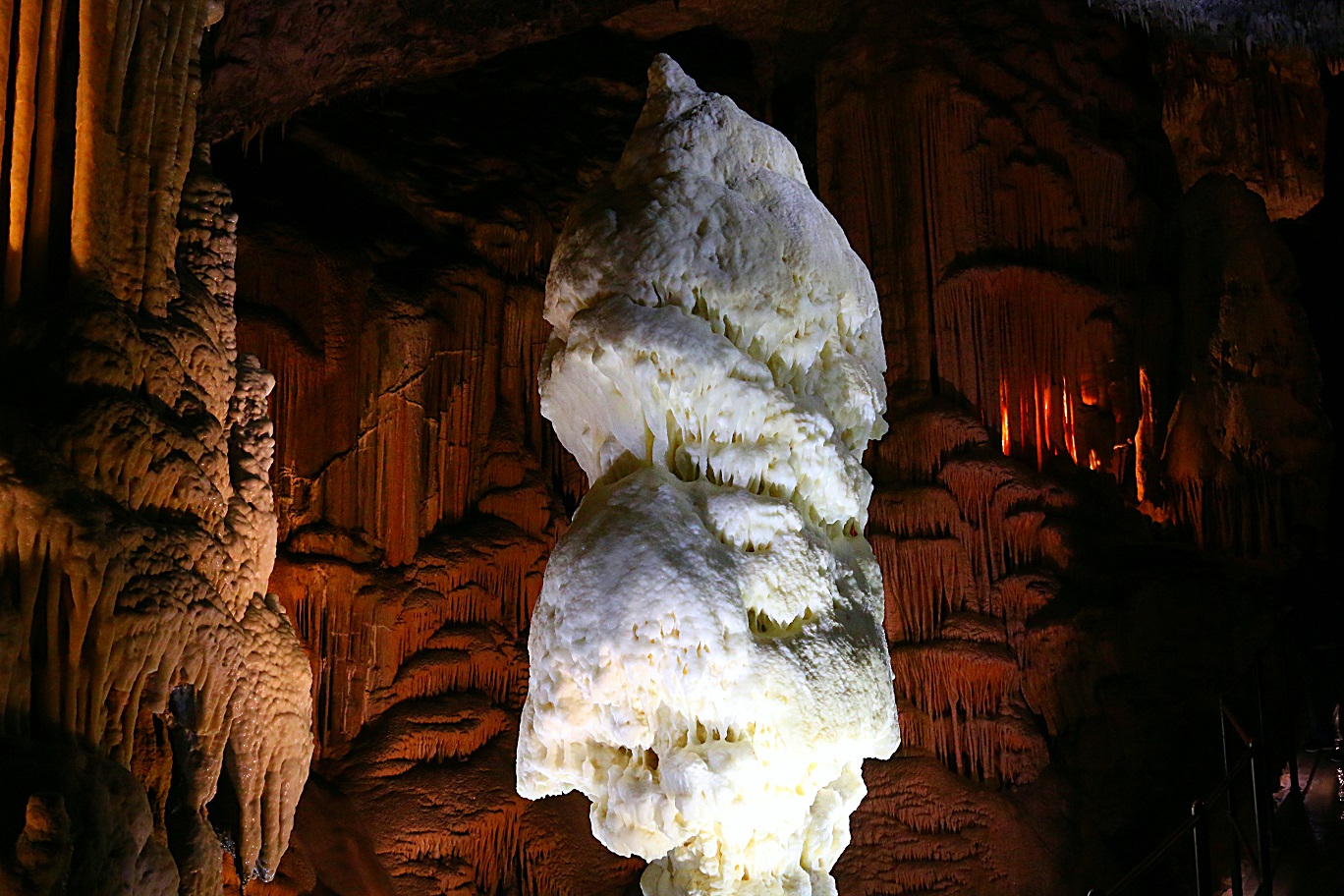
02 Nov 7: The sunny side of the Alps (Slovenia)
Trieste, Italy to Zagreb, Croatia (Sep 1 – 14)
Thigh status: Triple Whopper with cheese
I don’t realise I’ve crossed from Italy into Slovenia until all the signs suddenly start appearing in mirror writing. ‘Restavracija, okusna hrana!’ says one, beside a picture of an enormous slab of bloodied flesh. ‘Nevaren cestni odsek!‘ cries another, alongside a faintly alarming illustration of a motorcyclist flying spreadeagled through the air. You’re in the Balkans now, the country seems to declare. No more of those metrosexual Mediterranean pansies!
Slovenia — known aptly as ‘the sunny side of the Alps’ — certainly feels far less Italian than Austro-Hungarian. This perhaps isn’t surprising, considering most of it was under Habsburg rule for the best part of 600 years, until 1918. Terracotta tiles blaze under a bleached sky, each village a Technicolor smattering of reds, yellows, greens and blues. From above, I imagine it must look like a giant painter’s palette.
Occasionally, a hunched old crone will appear, a basket or broom clutched in a shrivelled claw. They are so quintessentially peasant-like that I can’t help wondering if they’ve been placed here for the tourists – just as I had my suspicions about that reassuringly cantankerous hotelier in Dieppe. Maybe countries feel a duty to fulfil a few cultural cliches on their border, just to ensure foreigners don’t leave disappointed.
I have decided to call my bike Maud, by the way. The name comes from this loveable beast, whose endearing violent streak reminds me fondly of my Kona. I’m not entirely sure why it’s a girl, considering I’ll be intimately astride her for the best part of eight months. But at least this arrangement may prove more palatable to the Iranian imams.
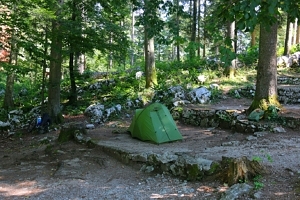
My first stop in Slovenia is Postojna, where I deposit my things in a campsite so I can walk to the famous caves nearby. Outside, they prove to be a disappointment, surrounded by the usual glut of tawdry tripe that infects most popular tourist attractions. Inside, however, they are breathtaking: a vast, craggy Hades of stalagmites and stalactites, formed three million years ago by the Plivka river (see pics).
It’s a macabre lair, the landscape a taut cadaver skin of rock draped on rock. But there’s life here too. There’s the cute if hapless troglodytic olm, for a start: a ‘neotenic’ creature that keeps most of its juvenile features into adulthood, and with which I can’t help feeling a natural affinity. There’s also water everywhere, ebbing and flowing, carving and eroding. Stalagmites, formed from dissolved calcite dripping from the ceiling, are testament to its dogged patience, growing just one inch in 40 years. I look on in awe and envy. If only my thighs would grow so slowly.
I see a chicken down here, as well as two pteradactyls and a camel. I also spot several goblins and monkeys, and phalluses everywhere. If the place is a giant Rorschach test, then I think I have problems. Our guide keeps me focused with a flow of excitable superlatives, however. We are, at various points, at the ‘highest point’ of the tour, and the ‘lowest point’; at the ‘thickest part’ of the roof, and the ‘thinnest part’. As I’m wondering if he’s the ‘most superlative’ guide the caves have to offer, we happen upon ‘the most beautiful stalagmite’ – and, to give him his due, it probably is (see pic).
From Postojna, I make my way to Ljubljana, the capital. I arrive harbouring some impressively uninformed preconceptions, and am expecting something rather forlorn and hopeless; some kind of drab embodiment of post-Communist disenchantment, with wisps of grey at the temples. What I find is an attractive, bustling, modern metropolis. When I ask a cafe if it has wifi, I receive a look of hurt incredulity. In fact, they have three: two city-wide networks, plus their own (take note, France!).
The city has a compassionate side too. It’s heavy on bike lanes, recycling bins and signs telling people to ‘drink tapwater’. Even the graffiti has a kindly edge, stating ‘refugees welcome’ and ‘stop repression’. These things are all sadly counteracted by the morally questionable policy of serving wine in 100ml thimbles, however, which surely does little to discourage the dangerous spread of sobriety among society.
It is dark by the time I reach my host’s house, around four miles outside the centre. His flat is basic but comfortable, and I have a room to myself, which feels wonderfully decadent. M- is an accountant, and we talk over grapes and cold red wine from the fridge. I assume the latter is a faux-pas on his part, until I discover later it’s widespread practice across the Balkans, where summer room temperatures touch sauna levels.
From M- I learn that Slovenians are not too keen on the Italians. They spend most of their time sleeping and preening, he says, and were weak-willed enough to support both sides in World War Two (‘you can’t have it both ways!’). Some Slovenians on the border refuse to speak Italian due to a hangover of hostility from the war, apparently – though whether this is due to anger at Nazi barbarism or concerns about the population’s endemic indecisiveness is unclear.
The Germans appear to have been forgiven, on the other hand, and are now seen as a beacon of economic aspiration. ‘This was a main reason we wanted independence,’ M- tells me. ‘As part of Yugoslavia, we were earning all this money for Bosnia and Serbia, who are much more like the Italians and threw it all away.’
So I think I’ve grasped it. The Italians don’t like the Germans; the Slovenians don’t like the Italians; the French don’t like anyone; and the Germans like everyone who plays by their rules. The Slovenians have good relations with their neighbouring Croatians, however, give or take a few niggly border disputes. ‘They are our brothers,’ M- says. ‘There’s a common language and culture there.’
Like most of his countrymen, M-‘s English is near-perfect. ‘In a country of two million, it has to be.’ With such a tiny population, the economy is reliant on foreign trade. On independence, it lost Yugoslavia’s 24-million strong market and found itself cast into the competitive, capitalist maelstrom on its western flank: a flea among titans. More than two decades later, wages remain below the EU average (approx. €1,100 net, compared to €1,500). However, the economy is strong, and performing extremely well compared to the rest of the Balkans, where salaries continue to languish around the €400 mark.
The next day, I venture into town to sample my first kranjska klobasa (Carniolan sausage) – a plump anaconda of pork, bacon, garlic, salt and pepper – and meet a friend who heads one of Slovenia’s leading human rights NGOs. She tells me about the ‘erased’: the 26,000 people denied Slovenian citizenship on independence, despite living their whole lives in the country. Half remain stateless now. ‘It took ten years to break public opinion and show that these people weren’t enemies of the state,’ she says. ‘It’s now seen as a human rights issue, but we have a long way to go.’
As a newly signed-up hobo, I have had a tiny taste of the impact of prejudice on the ego. Grubby, haggard and surviving on a shoestring, I know I am frequently being weighed up and judged by the people I meet. Yet I am white, British and middle-class, with a huge support network. And I am here by choice. I could brush my matted locks and rejoin the civilised folk of the township anytime I like. How it feels for people destined for society’s scrapheap, I have no idea. It must be bloody awful.
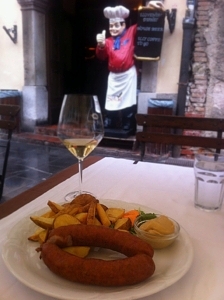
My first kranjska klobasa (Carniolan sausage), a serpentine beast of pork, bacon, garlic, salt and black pepper (no other ingredients are permitted).
The Roma are a case in point. An itinerant ethnic group originating from South Asia, they have historically faced discrimination almost everywhere they have settled. They are widespread across the Balkans, with around 10,000 in Slovenia. Here, nearly a third of Roma settlements have no water supply, according to my friend, while 40 per cent have no electricity. Harassment at school is common, and drop-out levels high.
In my experience, the Roma are the line where social liberalism ends. Even hessian-wearing, hemp-smoking beatniks with flowers in their hair and peace in their heart struggle to find a kind word. They are uneducated, unemployed, unlawful, unclean and unrestrained when it comes to spawning offspring, it is said. And much of this is true, to an extent. But if you believe that no ethnicity is born to be a societal burden, you have to ask: what came first, the problem or the prejudice? And where will the cycle end if the latter continues unchecked?
After a brief visit to Ljubljana Castle, where I consider replacing my Brooks saddle with a couple more compassionate-looking alternatives on offer in the torture exhibition (see pics), I go on my way. Surprising myself, I decide to shun the easy route for the hilly one. This is partly by choice, partly by a subtle hint of peer pressure from M-. ‘You can go the interesting way,’ he says. ‘Or you can go the flat way by the river, where you’ll die of boredom.’ He does own a lycra onesie, however, so is almost certainly not to be trusted.
But it’s good advice, as it turns out. Twenty miles of dullness is rewarded by acres of radiant fields, toy box houses, elegant churches and bursts of crimson blooms. After a lengthy lunch stop, I arrive in Novo Mesto, located in the centre of the wine-growing Krka Valley, by late afternoon. Settling down in a bar for a drink, I casually enquire what local wines are on offer — and suddenly find myself presented with four large, complimentary ‘taster’ glasses by the bar owner. Ah Slovenia, I think; a country truly after my own heart! (And probably much of my liver too.)
While getting completely, ill-advisedly sloshed, I learn everything there is to know about the Slovenian wine industry. Almost everyone in the region has around 250 vines, apparently, and produces their own wine. The speciality of area is the light red Cviček, the only wine in the world other than the Italian Chianti made from both red and white grapes. It cannot be more than ten per cent proof ‘for medicinal reasons’, and is refreshing and dry, with a hint of sweet berry. Predictably, the French hate it.
I rather enjoy it. But after six hours on the bike, my palate is admittedly more forgiving than most. I am less keen on the local cocktail miš-maš, however: a concoction of red wine and orange Fanta that has the hue of a bloodied urostomy bag.
It’s dark and I am thoroughly hooned when I finally harness Maud to ride the last few miles to Otočec. Luckily, I am not completely unversed in this kind of cycling, and have a nostalgic pang for home as I gently slalom through the dimming streets. By the time I arrive, the campsite barrier is firmly locked and nobody is around. It’s fortunately nothing a little light trespass and athletic limbo can’t solve, however, and by 10pm I am tucked cosily inside my tent.
Before going to sleep, I do my first (and most likely last) interview with the Slovenian press – which, put through Google translate, contains such insights on the Syrian refugee crisis as: ‘Attitudes towards refugees is negative, but the theme for policies like a hot potato that you provide, but nobody wants to be addressed. British policy was the fear that the people of Britain to understand their response as a policy skinned door.’ How I am the first person to be saying this, I have no idea.
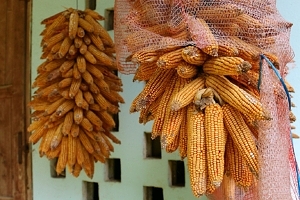
More maize (corn) for grain was grown in 2014 than any other crop. It’s often used to make the popular national dish Žganci: similar to polenta, but with finer grains.
The next morning, I head for Croatia. It’s a lovely cycle, as houses blend into barns and cattle sheds, and gardens into allotments and arable land. Hot wafts of manure ebb and flow, while cows look demure and pretend it’s nothing to do with them. By mid-morning, I am in a thoroughly good mood, and am just ruminating on the quite remarkable achievement of a borderless Europe when a burly policeman stops me in my tracks, looking gruff.
‘Where are you going?’ he says. ‘How did you get here?’ Well, technically by squeezing through those inconvenient road blocks around the corner, which had a nice, bike-sized opening in the middle, but I decide not to go into detail. ‘Why, is there a problem?’ I ask pleasantly. There is, as it turns out. Unbeknownst to me, there is indeed a border between Slovenia and Croatia. The latter is not yet in the passport-free Schengen zone, apparently, despite being in the EU – unlike Switzerland, which is in the zone despite not being in the EU. How very confusing.
This is not the official crossing, however, so I have inadvertently entered the country illegally: my second foray into criminality in just 24 hours, both of which I have rather enjoyed. I ready myself for an ear-bashing, but when the guard sees my British passport, his tone changes. ‘Ah London. I love London! Have you cycled from there?’ It’s not the first time I’ve made a friend based solely on where I am from — a piece of tremendous good luck, in which I played no part whatsoever — and I suspect it won’t be the last.
As I make my way to the official crossing and am waved swiftly through, I reflect on what it must be like to have no nationality, no freedom, no formal identity. To be erased. It is surely not a fate to be wished on anyone.
To be continued…
To be continued…


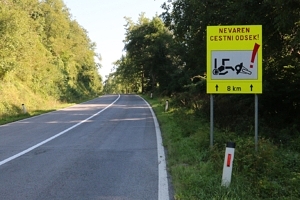
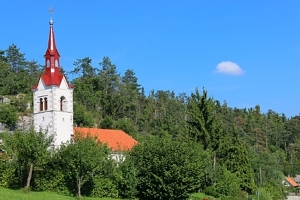
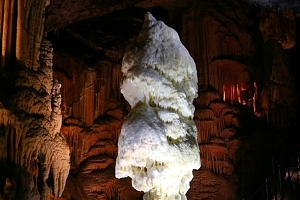
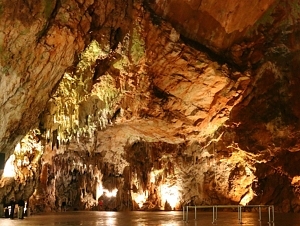
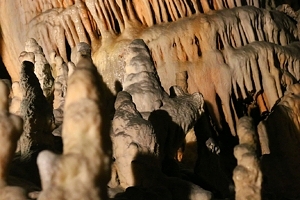
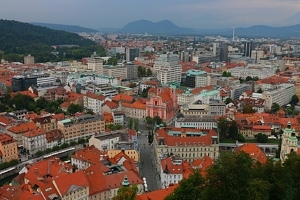
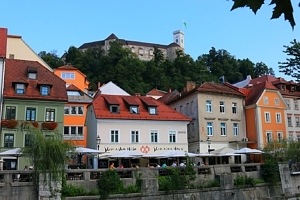
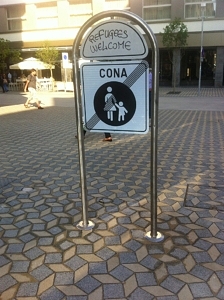
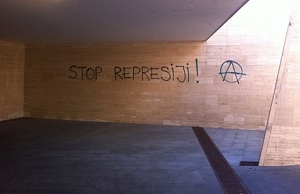
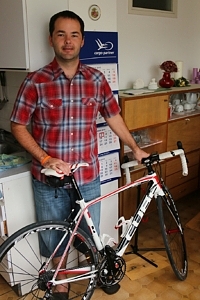
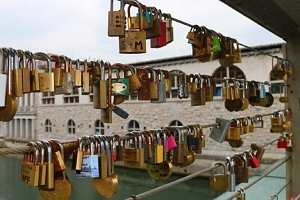
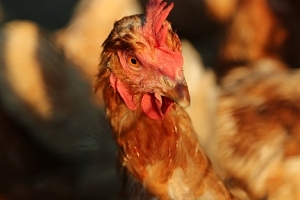
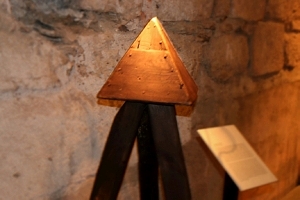
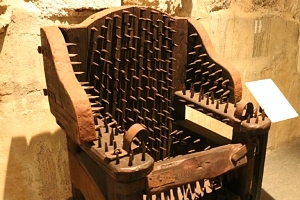
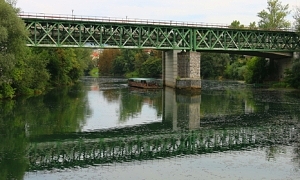
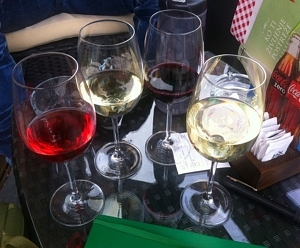
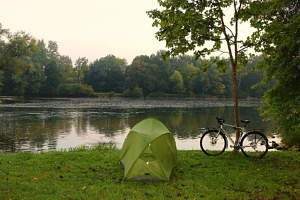
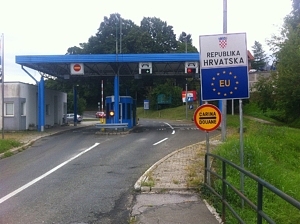
Katalin Lowe
Posted at 20:55h, 25 NovemberThis is excellent Bexi – your best so far! Highly evocative, informative and thoroughly enjoyable. I feel I want to get on a bike and follow your route – and I can’t even ride a bike!
reol8
Posted at 14:36h, 29 NovemberThanks mum. But please can you disguise yourself in the future so your comments carry more credibility? xxx
Belinda Lowe
Posted at 09:20h, 26 NovemberAnother brilliant blog Bex – your compassion, understanding and appreciation of other people’s situation in the world, compared to our fortunate birthplace, is wonderful. Sounds like you’re having many enjoyable, challenging and enriching experiences. Look forward to hearing more during the family festivities. X
reol8
Posted at 14:42h, 29 NovemberThanks so much, Bel. Means a lot. Sadly I won’t be at the festivities – though hoping to be wired in over the airwaves somehow (perhaps you could sit me on a laptop around the table, like the computer in Red Dwarf?) Definitely back by April next year, however. Much love, Bex xx
Toby
Posted at 18:26h, 27 NovemberBacon is pork. Love these Bex – we’re still with you! x
reol8
Posted at 14:52h, 29 NovemberAh yes, I see your point. Correction: the sausages contain at least 75% pork (aside from bacon), plus at most 20% bacon. According to Wikipedia. And the person eating them is 100% pig. Big love to you and M, and thank you for reading! x
Kezia Bowman
Posted at 22:01h, 15 JanuaryI love this, so funny! I have also recently been in the Balkans, including Slovenia and was immediately struck by how kind and helpful people are. Got lost in the dense forest that is Slovenia and flagged down a driver after dark who helped me figure out where I was and drive me to the nearest place to find somewhere to sleep without one word of English! I’m really looking forward to reading the rest of your blog, it’s inspiring!
reol8
Posted at 11:55h, 05 FebruaryThanks Kezia! Great to hear from you, and good to know others have experienced the same generosity of spirit. Amazing the bonds you can forge without any mutual language. My poor linguistic skills have definitely made me a master of the art of wild gesticulation. Do keep in touch and all best! R